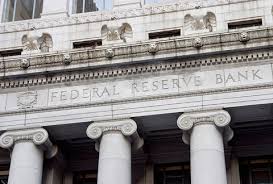 On Wednesday, The Federal Reserve announced its last rate hike of the year. Following the Federal Open Market Committee Meeting (FOMC), the Fed said that it would be increasing interest rates to 2-1/4 to 2-1/2 percent.
On Wednesday, The Federal Reserve announced its last rate hike of the year. Following the Federal Open Market Committee Meeting (FOMC), the Fed said that it would be increasing interest rates to 2-1/4 to 2-1/2 percent.
The market was expecting this rate hike which is the ninth one since 2015 as the Fed unwinds its policies put in place to address the financial crisis a decade ago.
Looking at the next year, the FOMC said that it would assess the economic conditions "relative to its maximum employment objective and its symmetric 2 percent inflation objective," to determine the target range for its federal fund rates. "This assessment will take into account a wide range of information, including measures of labor market conditions, indicators of inflation pressures and inflation expectations, and readings on financial and international developments," the committee said in a statement.
According to Tendayi Kapfidze, Chief Economist at LendingTree, the Fed rate hikes would not affect mortgage rates as much even though both are often influenced by the same factors. "The U.S. Treasury and mortgage markets operate independently of the Fed funds rate and are also influenced by international developments and investors to a larger extent, further decoupling them from the Fed funds rate impact," Kapfidze said. "However the real impact will be seen in variable rate products such as adjustable-rate mortgages and home equity lines of credit that are based on short-term rates."
However, according to Danielle Hale, Chief Economist at Realtor.com, "While mortgage rates don't move in lock-step with the Fed Funds rate, the increase in short-term rates may be enough to inspire rates to head back to the near 5 percent levels of mid-November. Buyers still looking for a home should enjoy the holiday gift of lower rates while they last, because higher mortgage rates mean bigger budget challenges in the future."
Commenting on the rate hike, Dr. Frank Nothaft, Chief Economist at CoreLogic said that the hike was consistent with the latest data on labor markets and inflation. "The Fed considers the monetary policy as accommodative for economic growth and prefers to raise short-term interest rates gradually to reduce the degree of economic stimulus coming from low-interest rates," Nothaft said. "The rise in the federal funds target will increase other short-term interest rates, including those that serve as an index for adjustable-rate mortgages and HELOCs."
Looking at the Fed forecast, Ruben Gonzales, Chief Economist at Keller Williams said that any indication by the Fed for a "slower path of rate increases in 2019 is a potential upside to housing in the short term."
“Most data continue to support the conclusion that the economy remains healthy; however, recent market activity and the flattening yield curve seem to be showing some risk to growth,” Gonzales said. “Overall, we see the existing home market as likely to decline in the ballpark of 2 percent next year in terms of sales with prices for existing homes rising around 3 percent.”

 theMReport.com Your trusted source for mortgage banking news
theMReport.com Your trusted source for mortgage banking news








